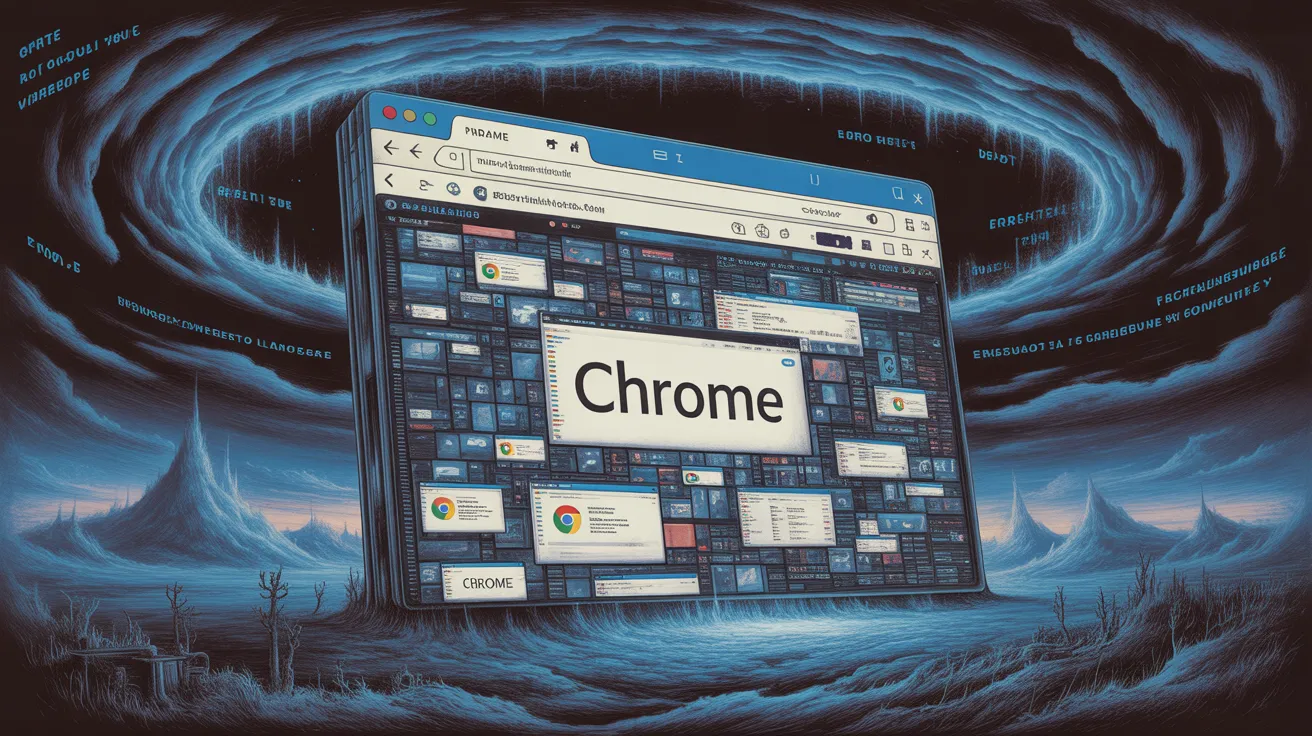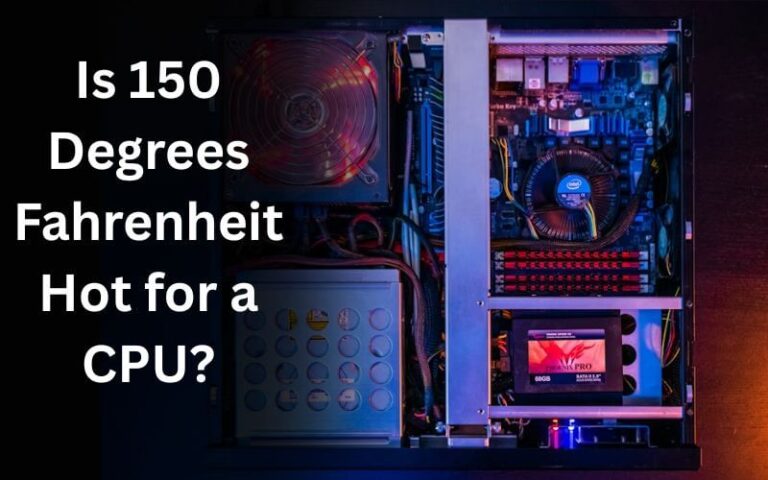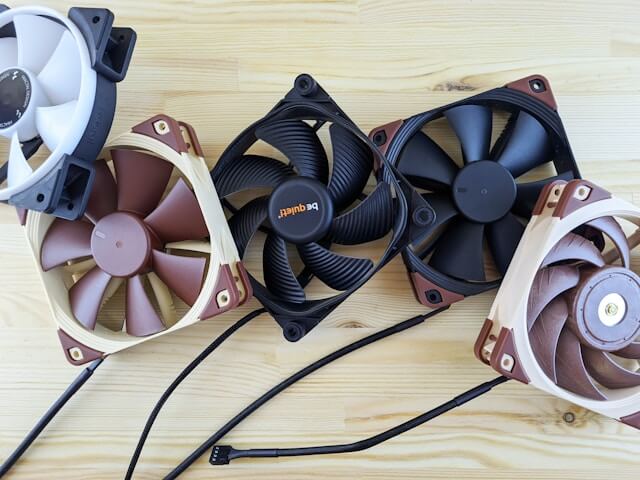Why does Chrome use so much CPU? Close extra tabs!
Chrome uses a significant amount of CPU because it runs multiple processes simultaneously, including tabs, extensions, and background tasks. Each tab works independently for speed and safety, but this requires the browser to use more processing power.
In this guide, we will explain why this happens and how you can reduce Chrome’s CPU usage for smoother browsing.
Also Read: How much power does a CPU use? Check Power Usage!
Why Chrome Uses More CPU Than Other Browsers?
Chrome uses more CPU because it works differently from many other browsers. Each tab, extension, and plugin runs in a separate process. This makes browsing safer and smoother, but it also puts extra load on the CPU. Features like background updates, notifications, and heavy websites also add to the usage.
Also Read: How to check if the CPU is overclocked- Check CPU Speed!
Why Chrome Runs Multiple Processes and Uses CPU?

Chrome runs multiple processes to keep your browsing fast and safe. Each tab, extension, and plugin works separately, so if one crashes, the whole browser doesn’t stop. But this system uses more CPU power because many processes run at the same time.
Also Read: What is high CPU temp? Check CPU Temps!
How Chrome’s Processes Impact CPU Performance?
Chrome runs multiple processes to keep your browsing fast and safe. Each tab, extension, and plugin works separately, so if one crashes, the whole browser doesn’t stop. But this system uses more CPU power because many processes run at the same time.
Also Read: How much power does a CPU use? Save More Energy!
How Tabs Affect Chrome’s CPU Consumption?
Each open tab in Chrome uses its process. This helps tabs run smoothly and stay safe, but it also increases CPU usage. The more tabs you keep open, the more CPU power Chrome will need to handle them.
Also Read: What CPU cooler do I have? Check Cooler Now!
How Chrome’s Rendering Engine Uses CPU Resources?
Chrome’s rendering engine is what shows websites on your screen. It processes text, images, videos, and designs to make pages look correct. This work needs a lot of CPU power, especially on heavy or complex websites, which increases CPU usage.
Also Read: How tight should the CPU cooler be? Check Guide!
How Chrome’s Memory Usage Affects CPU Performance?

When Chrome uses too much RAM, the CPU has to work harder to manage it. If memory is full, the CPU spends extra time moving data around. This can slow down performance and increase CPU usage.
Also Read: What does the CPU light mean? Inspect the Light!
How to Reduce Chrome’s CPU Usage Effectively?
You can reduce Chrome’s CPU usage by closing extra tabs and removing unused extensions. Keep Chrome updated for better performance. Use Chrome’s Task Manager to find heavy tabs and end them. Also, clearing the cache and disabling background apps can help lower CPU load.
Also Read: What does CPU opt mean? Read Now!
Why Chrome’s Task Manager Shows High CPU Usage?
Chrome’s Task Manager shows high CPU usage because many processes are running at the same time. Each tab, extension, and background task uses CPU power. If heavy websites or multiple extensions are open, the Task Manager will show even higher usage.
Also Read: What is a good CPU temp for gaming? Check Temps Often!
Does Chrome’s Cache Increase CPU Usage?
Chrome’s cache is made to save data and load websites faster. Normally, it does not use much CPU. But if the cache becomes too large or corrupted, Chrome may take more CPU power to manage it, which can slow performance.
Also Read: What is cpu opt header? Complete Guide 2025!
How Chrome’s Background Features Affect CPU Usage?

Chrome’s background features, like notifications, syncing, and extensions, keep running even when you are not using the browser. These tasks use CPU power in the background. If many features are active, Chrome’s CPU usage becomes higher.
Also Read: What is CPU utilisation? Check Utilisation Regularly!
FAQs:
1. How can I check if Chrome is causing high CPU usage?
You can open Chrome’s Task Manager (Shift + Esc) or Windows Task Manager to see if Chrome is using too much CPU.
2. What steps should I take when Chrome slows down my computer?
If Chrome makes your computer slow, start by closing unused tabs and background apps. Remove heavy extensions, clear browsing data, and update Chrome.
3. Does using too many Chrome extensions increase CPU usage?
Yes, every extension runs its process in Chrome. When you install many extensions, they use more memory and CPU in the background.
4. Can outdated Chrome versions cause high CPU usage?
Yes, older Chrome versions may have bugs, poor optimization, or missing security updates. These issues can cause extra CPU load.
5. Is disabling hardware acceleration in Chrome helpful for CPU performance?
Yes, in some systems, hardware acceleration makes Chrome heavier on the CPU instead of the GPU. Turning it off can improve performance and reduce CPU usage, but results vary depending on your device.
Conclusion:
Chrome uses more CPU because it runs many processes for tabs, extensions, and background features. While this system makes browsing safer and faster, it also puts more load on your computer. By closing extra tabs, removing unused extensions, and keeping Chrome updated, you can reduce CPU usage and enjoy smoother, faster browsing.







